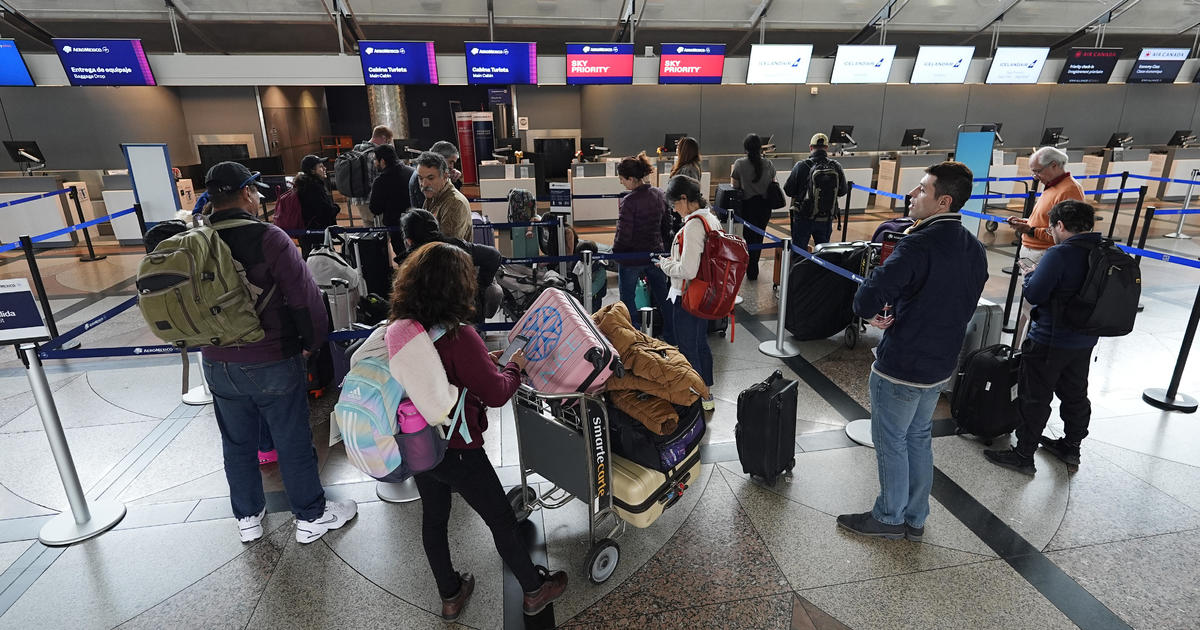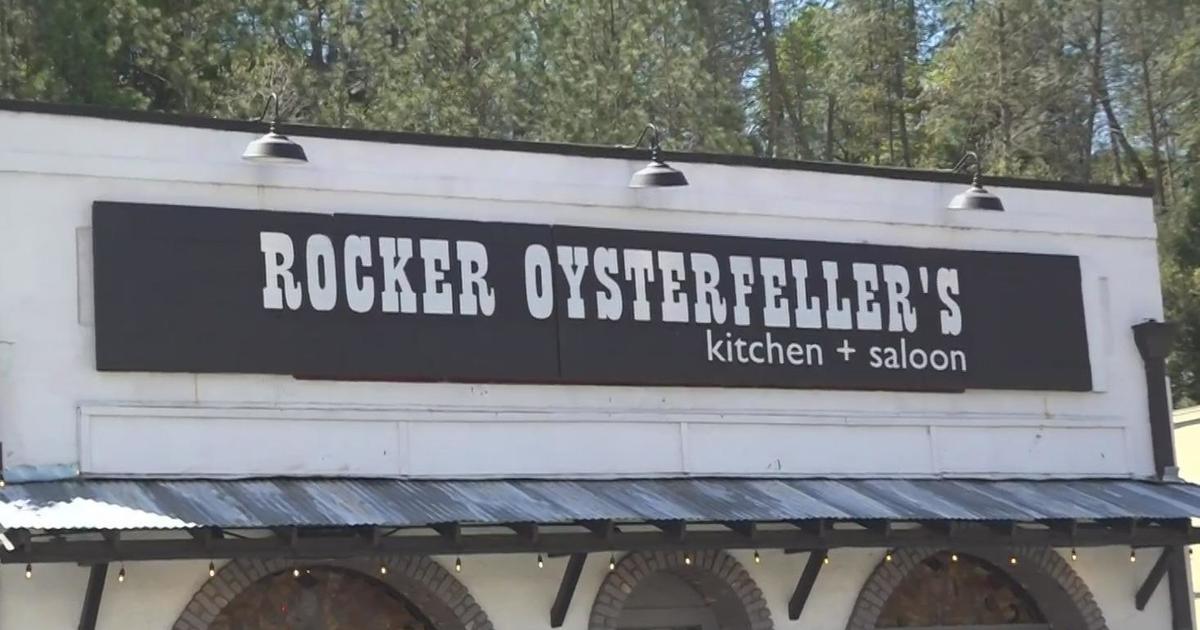Calif. Lawmakers Return For Election-Year Session
SACRAMENTO, Calif. (AP) — California lawmakers are returning to the Capitol this week for a pivotal election-year session.
Expect fights over billions of dollars in new tax revenue and leadership changes in both parties. Democrats will work to protect the supermajorities that give them command of state politics, as a federal corruption investigation hangs over one of their own in the Senate.
Meanwhile, freshmen lawmakers elected under California's newly extended term limits will come of age, a class that could dominate the lawmaking process for more than a decade.
"It's a year that will be unlike others and predictable only in the way that they will all be looking to some degree after their own self-interest because it's an election year," said Senate Minority Leader Bob Huff, R-Diamond Bar. "It just changes the dynamics."
Democrats will face heavy pressure on taxes, with interest groups urging them to make changes and put constitutional amendments before voters with or without Republican support. Party leaders, meanwhile, will balance such demands against the risk of overreaching and alienating centrist voters.
Senate President Pro Tem Darrell Steinberg, D-Sacramento, and Assembly Speaker John Perez, D-Los Angeles, said their goals include building up a budget reserve, paying down long-term debt and cautiously restoring funding to some social programs that were cut during the recession. Such spending would include more money for education — from working toward universal preschool programs to giving colleges and universities enough money to prevent tuition increases.
Assembly Minority Leader Connie Conway, R-Tulare, however, warned her political rivals not to "get crazy and spend a bunch of money that we don't have."
Democratic lawmakers also plan to revisit some of the major issues from last year, including gun control and environmental safeguards. Their absolute control of the legislative process coupled with billions of dollars in new revenue from voter-approved increases in sales and income taxes creates what Perez called a "healthy tension" between lawmakers and also with Gov. Jerry Brown, a fellow Democrat who is urging fiscal restraint and is up for re-election this year.
That tension shows over the issue of whether to change the tax code. "There are smart ways to make improvements to our tax system, and we ought to look at them," Steinberg said.
He wants lawmakers to consider imposing a new tax on oil produced within the state, noting that California is the only state without an oil-extraction tax.
Democrats also could advance a ballot measure that would make it easier to approve local taxes under Proposition 13. The landmark 1978 voter initiative rolled back property taxes and limited annual increases, and it also required support from two-thirds of voters to pass local tax hikes. A new plan would seek to lower that threshold.
Perez considers such a plan as unlikely to get much traction in his chamber. "And while we're at it, we'll consider the electrification of third rails," he said, alluding to the political danger in trying to alter Proposition 13, which sometimes is called the "third rail" of California politics because touching it can lead to the death of political careers.
Perez said legislative action on an oil-extraction fee also is unlikely, although he said his chamber would consider anything that passes the Senate.
California Target Book publisher Allan Hoffenblum said party leaders will face growing pressure from "progressive Democrats, who say, 'We've got the governor's chair, we've got supermajorities in both chambers — my God, why don't we start spending it?'"
Yet the impulse to raise taxes or spend the budget surplus will be tempered by business-friendly Democrats and those facing tough re-election battles, said Hoffenblum, whose publication analyzes legislative and congressional campaigns. The state's independent legislative analyst has projected a $5.6 billion reserve by July 2015 and annual operating surpluses approaching $10 billion a year by the 2017-18 fiscal year if current spending and revenue policies continue.
Analysts said the majority party must tread carefully. Democrats are in no danger of losing control of either the Assembly or Senate, but retaining their two-thirds majorities will depend on just a handful of seats in each chamber.
A Field Poll released in December showed the Legislature with a 40 percent approval rating, up 30 percentage points since it hit bottom three years ago. But that is largely a function of the improving economy, said poll director Mark DiCamillo, and many voters remain suspicious of Democrats' extraordinary power.
Internal politics also will consume lawmakers' energy, with three of the four current caucus leaders set to leave office after next year because of term limits.
The leadership struggle and Senate relations may be complicated by an ongoing federal investigation into whether Sen. Ron Calderon, D-Montebello, accepted money from a hospital executive and undercover FBI agent to influence legislation.
Calderon said in court documents that he was asked to wear a recording device in an aborted attempt to ensnare Steinberg and Sen. Kevin de Leon, D-Los Angeles, a top candidate for Senate leader after Steinberg steps down. Calderon has denied wrongdoing, no charges have been filed, and both Steinberg and de Leon say they've done nothing wrong and that prosecutors have told them they're not targets.
Perez said he plans to step down as speaker in mid-summer, after the budget is passed, which will allow him to concentrate on running for state controller. Steinberg, who is not seeking higher office next year, said he hopes to remain Senate leader until his term expires after the November election.
Assembly Minority Leader Conway also has served nearly as long as she can and plans to step down this summer, leaving Senate GOP leader Huff as the only current party leader whose term extends through 2016.
A new dynamic is in play as caucus members consider their replacements. Voters last year changed the state's term limits to let lawmakers serve up to 12 years in either the Assembly or the Senate, or a combination of both.
Previous rules limited legislators to eight years in the Senate and six in the Assembly, but last year's freshman lawmakers will not be termed out until 2024. That applies to just two members of the 40-member Senate, but to 42 Assembly members — a majority in that 80-member chamber.
New party leaders could serve 10 years or more in that position, while chairmen of powerful committees could begin building their own fiefdoms.
"You're going to get to an era where you're going to see some lawmakers achieving power, and there won't be as much turnover," Hoffenblum said.
Copyright 2014 The Associated Press. All rights reserved. This material may not be published, broadcast, rewritten or redistributed.



